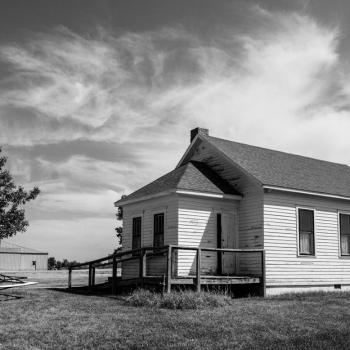
I would never call anyone stupid. I shouldn’t say never because I have done it in the past. Usually, it is out of anger or my own childishness that I throw out that label. But there are so many different kinds of cognitive impairments that this label really doesn’t describe the situation and even if it did, it is probably is not that person’s fault. We are just being mean-spirited when we call someone stupid, and not necessarily accurate.
Willful Ignorance is when we choose to ignore any input that might change our already held assumptions. It is driven by confirmation bias and avoids all evidence that might upset our current model of reality. In law terms, this mindset might be call willful blindness.
Stupidity might even be something we can’t avoid, but ignorance doesn’t have to be a permanent condition.
Where do we see this willful ignorance and how can we change it?
Currently, we see this condition in politics. Because we assume having our candidate in office is most important, we believe the stories attached to them by our group and ignore the other side’s obvious false information. This became painfully obvious in this year’s election when conspiracy theories and bad information were rampant and widely accepted, enough that some people felt the world would end if they didn’t overthrow the election.
Willful Ignorance is also connected with issues of the pandemic, but I don’t have enough space to discuss that issue right now.
These types of beliefs and practices are sadly often rooted in religion. In my background, it was promoted that there was a demon around every corner, so that made it easier to believe any kind of myth about the world. Once a week for over a year, I would receive false information from the same person. It only took a little bit of research to show it false, but she kept forwarding from her “reliable” source until I had to unfriend her. I’m not saying she is stupid, just willfully ignorant of the facts. I find this to be quite common in religious circles. We search for information that confirms our bias.
The trouble with overcoming ignorance about anything is that it takes effort and sometimes, discomfort to find out what is true and not just what is agreeable. At some point, we invested some time to settle on our current belief system and accept the thoughts we would defend. And then, we aligned with a group for needed support and a reminder that we are “right.”
But, as many have said, the truth is a persistent thing, and often it makes us uncomfortable.
We can either lash out at the group that opposes us or we can do what I did a few years ago and start asking better questions. If something troubles us, like when we see our group going to war or trying to overthrow a branch of government or other things that contradict our core understanding, then we should dig a little deeper and see whether we are being willfully ignorant about the apparent contradiction.
As a pastor, I noticed the issues that were occasionally challenged. In my mind, they also didn’t make sense, but I was paid to defend them. Eventually, I allowed myself to ask the questions and when I pulled at the string, the sweater came unraveled.
I wouldn’t say it’s been a blissful journey over the past few years, asking questions, digging deeper, and uprooting my ignorance. But it has been worth it and I have found peace.
I traded being accepted and agreeing with the group for my integrity. Every day, I feel like I’m getting closer to an authentic understanding of the world based on real research and asking very tough questions.
I wish you the same. Take some small steps out of the comfort of the stable and look over the horizon and ask better questions. When we are ready to learn, wisdom presents itself. Understand that most people aren’t looking for the truth (no matter what they say), and they might resist or try to hold you in their control.
I have found the journey to be a real adventure, full of twists and turns and a fair amount of struggle. But I found things like peace, presence, authenticity and wisdom. I would never go back to being willfully ignorant again. I will never say “I don’t know.” I now say, “I will look into that.”
I wish you well on your journey.
Be where you are, be who you are, be at peace,
Karl Forehand
Support us on Patreon * The Desert Sanctuary Website
Karl Forehand is a former pastor, podcaster, and award-winning author. His books include Apparent Faith: What Fatherhood Taught Me About the Father’s Heart and the soon-to-be released Tea Shop. He is the creator of The Desert Sanctuary and Too Many Podcasters podcasts. He is married to his wife Laura of 32 years and has one dog named Winston. His three children are grown and are beginning to multiply!













